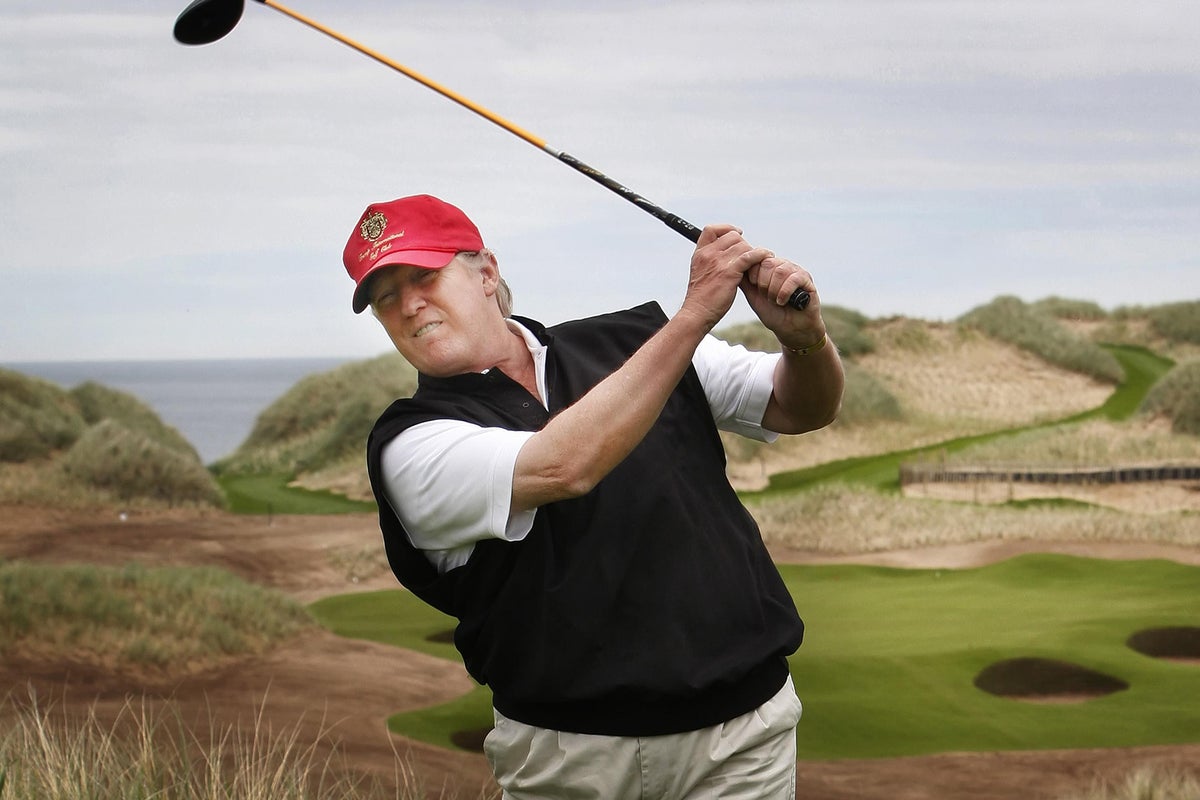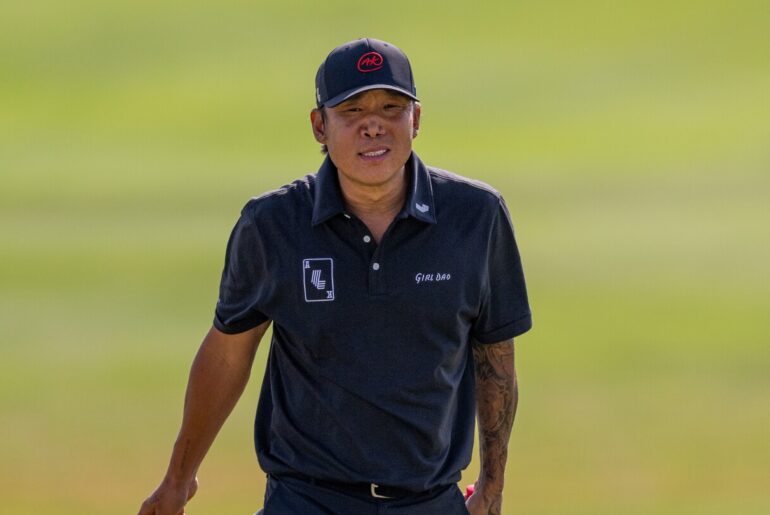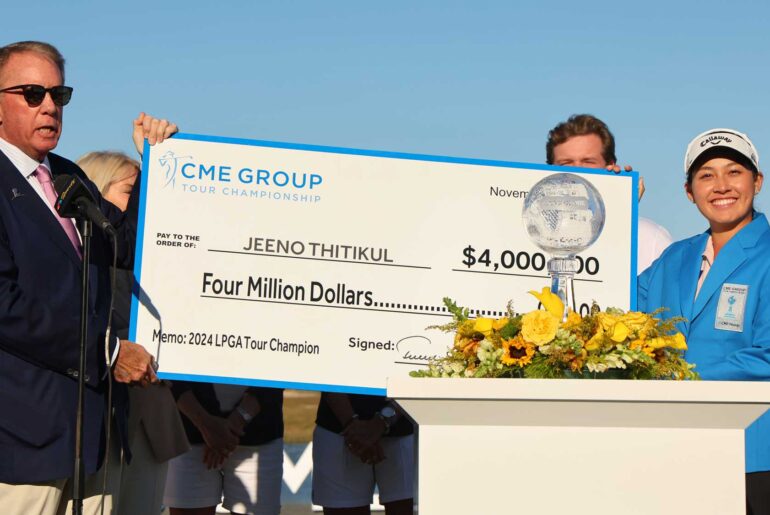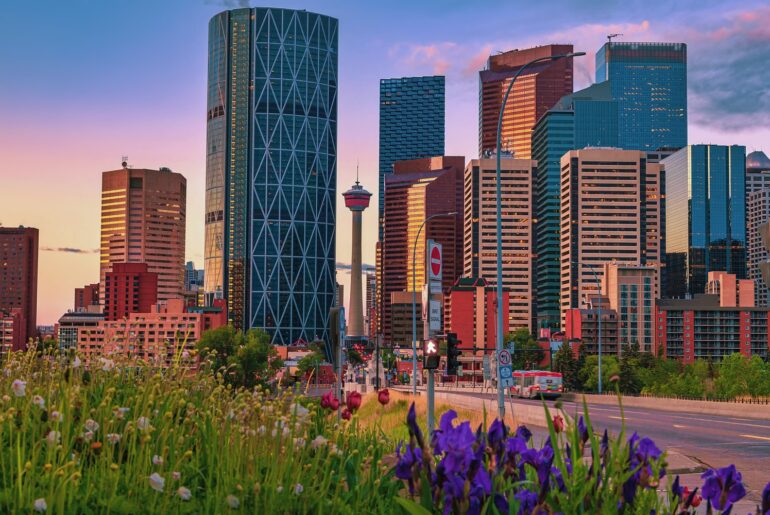Donald Trump’s golfing trip to Scotland this weekend has started to look like a few days of welcome relief for the US president. From Downing Street’s perspective, however, it may all look a bit different.
At home, Trump is embroiled in linked controversies that seem to have come out of the blue. Having seen off most of the legal challenges to the orders he issued in his first days back in office, he now faces a quasi-rebellion from his hitherto loyal and largely unquestioning base over a case that has little obvious bearing on high politics at all.
These die-hard Trumpists were disappointed by official findings that the accused child-trafficker and convicted sex offender, Jeffrey Epstein, did indeed die by suicide in prison and that there is, and was, no secret client list. They had shared a conspiracy theory that Epstein was part of a shadowy elite, that he had been killed to keep him quiet, and that after Trump came to power, the truth would emerge.
Now, Trump is himself being accused of an establishment cover-up, and is confronting a social media storm that even this master of the medium is struggling to control.
Trump has also launched lawsuits against the Wall Street Journal, its proprietor, Rupert Murdoch, and two journalists, denying a report of links between Trump and Epstein, including a bawdy birthday greeting allegedly sent by Trump. The prospect of a court confrontation between the two titans is tantalising.
Trump has also ordered files relating to the Epstein case to be published, and both his attorney general and Congress want to question Ghislaine Maxwell – the only person convicted in connection with the case so far. It may be surmised that they hope to tempt Maxwell with a reduction in her 20-year sentence and persuade her to offer some “helpful” evidence.
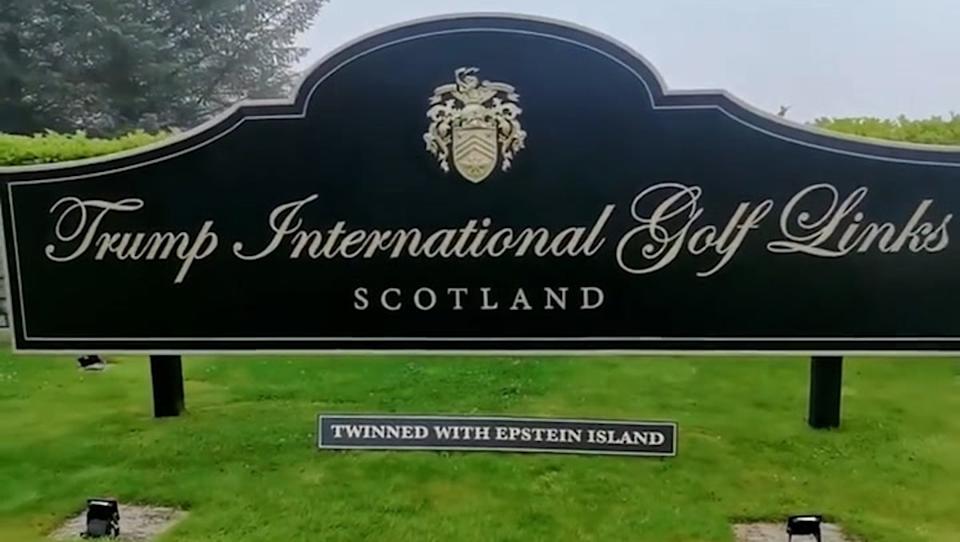

‘His foes on this side of the Atlantic are already tuning up – wags have put up a spoof sign at his golf course near Aberdeen that says “twinned with Epstein Island”’ (Everyone Hates Elon)
With only a year until the start of the midterm congressional election campaign, Trump needs to keep his base intact. No wonder four days in the wilds of Scotland – the homeland of his late mother and two Trump-owned golf courses, including a new resort on the Menie Estate, outside Aberdeen – might look like a welcome distraction.
His foes on this side of the Atlantic are already tuning up – wags have put up a spoof sign at his golf course near Aberdeen that says “twinned with Epstein Island” – and elaborate police and security operations are in train. When Trump last visited his Scottish businesses two years ago, he was not president. Now, even on a private visit, he requires presidential-level security, at least some of which must be supplied and paid for by the host country.
The timing of this trip, less than one month before Trump’s unprecedented second state visit to the UK, adds risk. Any infelicities, real or perceived, on either side now are in danger of negatively colouring the later visit, the invitation for which was conveyed by Keir Starmer during his trip to the White House soon after Trump’s inauguration.
Since then, content, timing and tone have all been in contention. The recent state visit by France’s President Macron, with its especially high pageantry, address to parliament, and prominent deployment of the Prince and Princess of Wales, seemed top-of-the-line. Like the Macrons, the Trumps will stay at Windsor Castle, but this occasion has been timed to exclude the possibility of a parliamentary address and the visit to Balmoral that Trump angled for. Nor, the Palace has made clear, will the King be meeting Trump during his golfing weekend. The private and state visits are wisely being kept distinct.
At government level, in contrast, a different choice has been made. The prime minister is expected to hold talks with Trump, potentially on every current issue, from trade tariffs to Ukraine, in or near Aberdeen, and possibly at Trump’s golf course. There will also be a meeting with Scotland’s first minister, John Swinney, who has decided that it is his duty “to engage, to protect and to promote the interests of the people of Scotland”, despite vocal opposition from other groups.
Now, it could be said that Starmer, in particular, was damned if he did and damned if he didn’t. Given that the decision has been taken, however, the aim must be to limit any damage. Anything that smacks of paying tribute must be avoided, and that includes meeting Trump at his golf course and any announcement about awarding the 2028 British Open to the now Trump-owned Turnberry, as the president would reportedly like.
By meeting Trump in Scotland, Starmer risks not only becoming the focus of protests himself but also party to the negative blowback from British public opinion. As much can go wrong as go right. The prime minister should have followed the Palace and left all official encounters for the main event, where the protocol is clear and risks of all kinds are minimised. After all, there are fewer than four weeks to wait.

